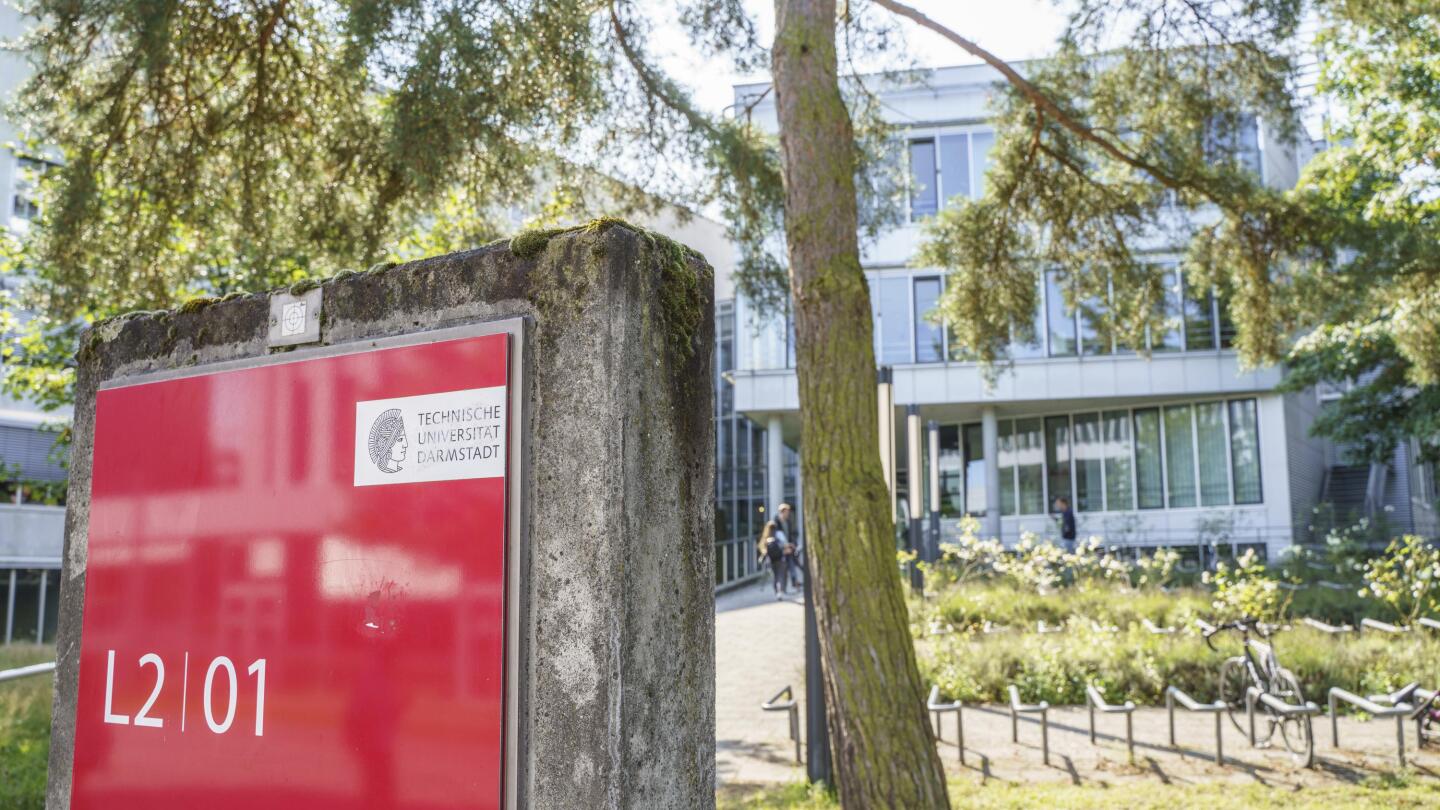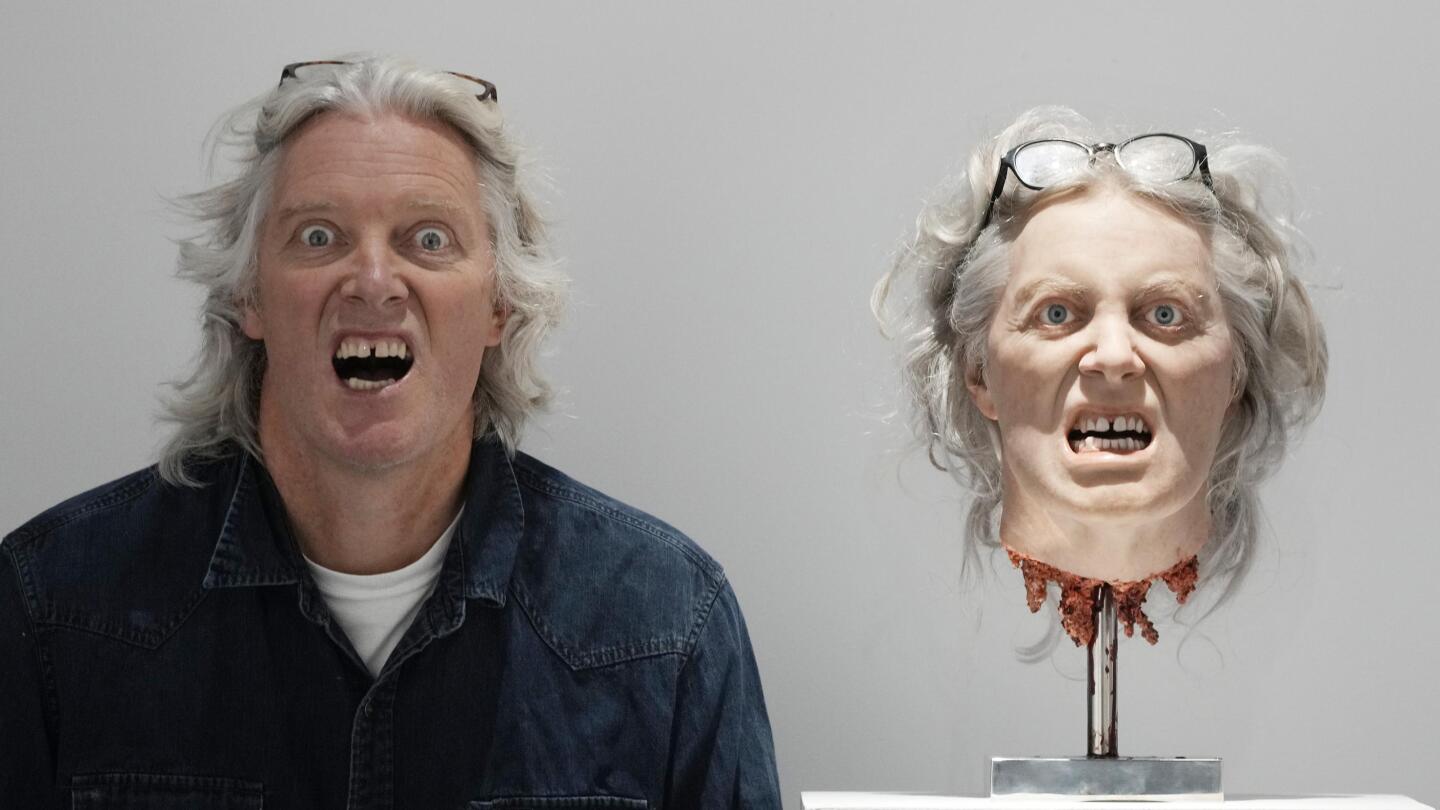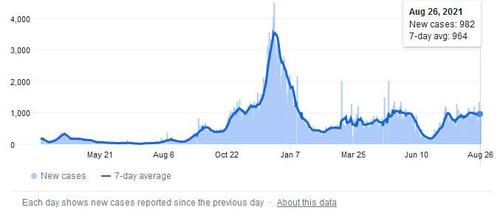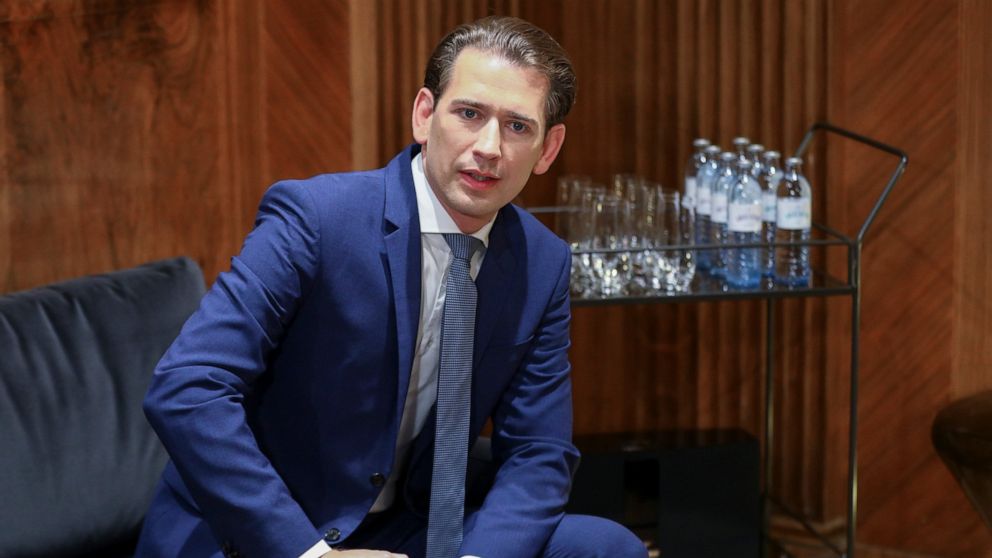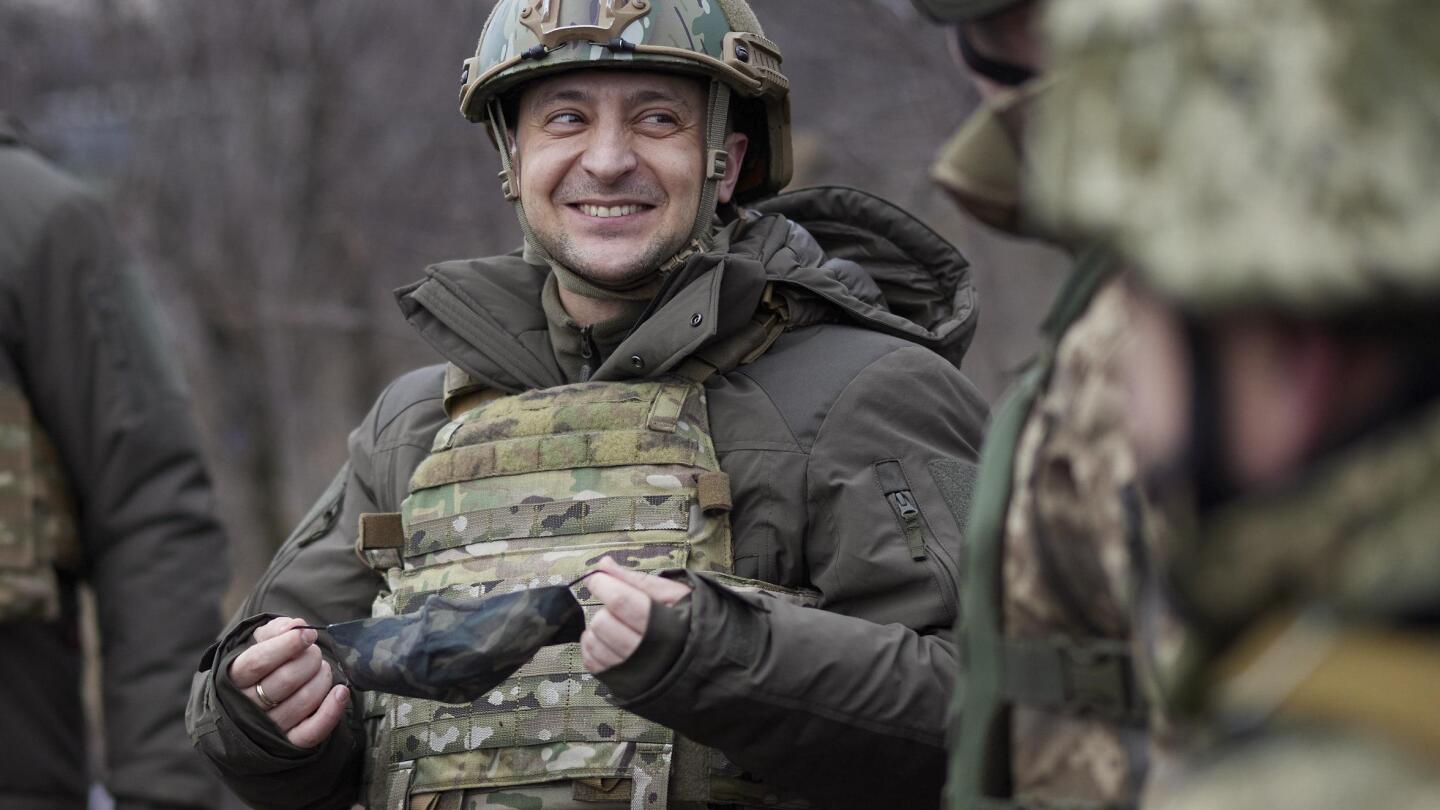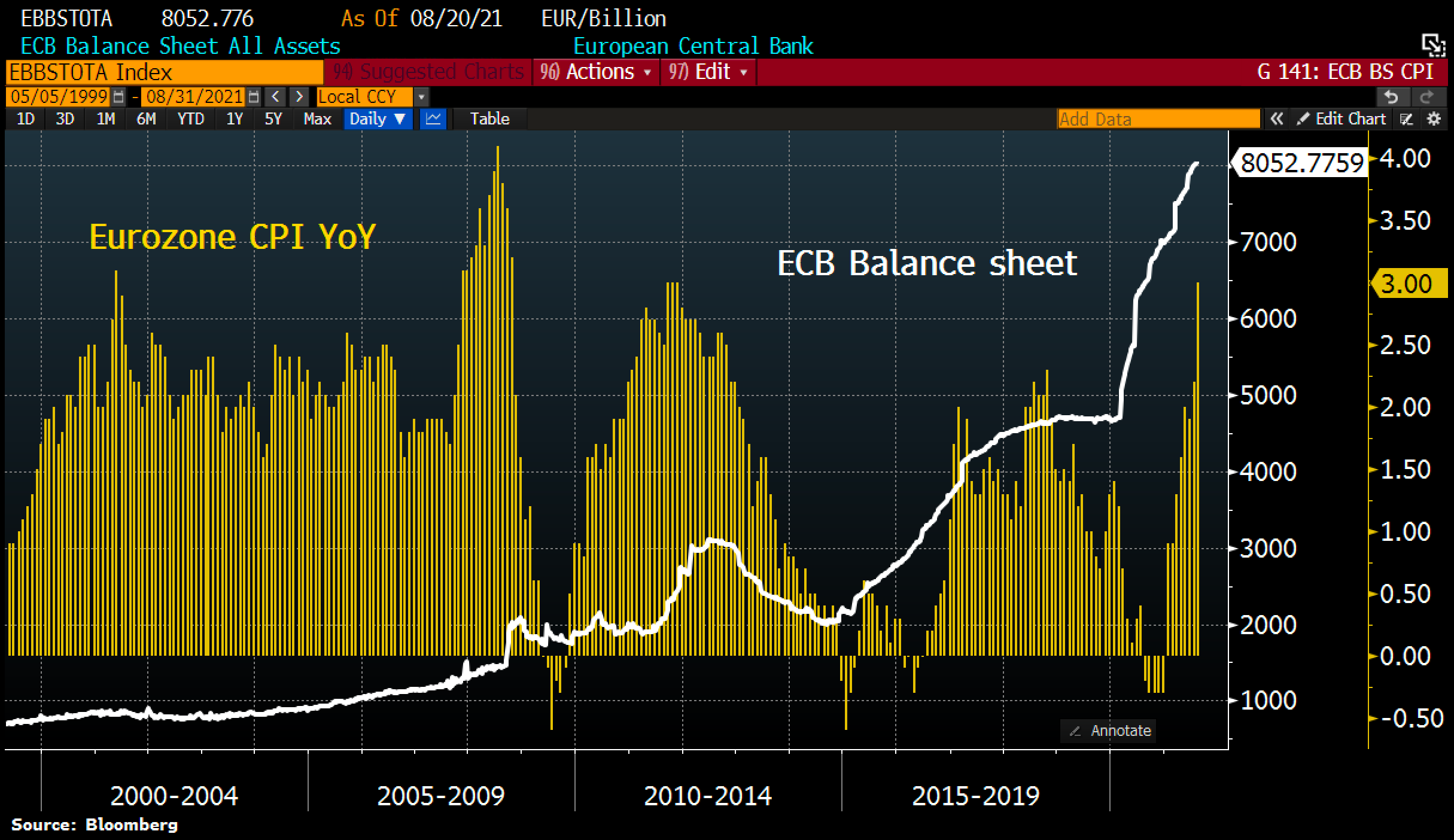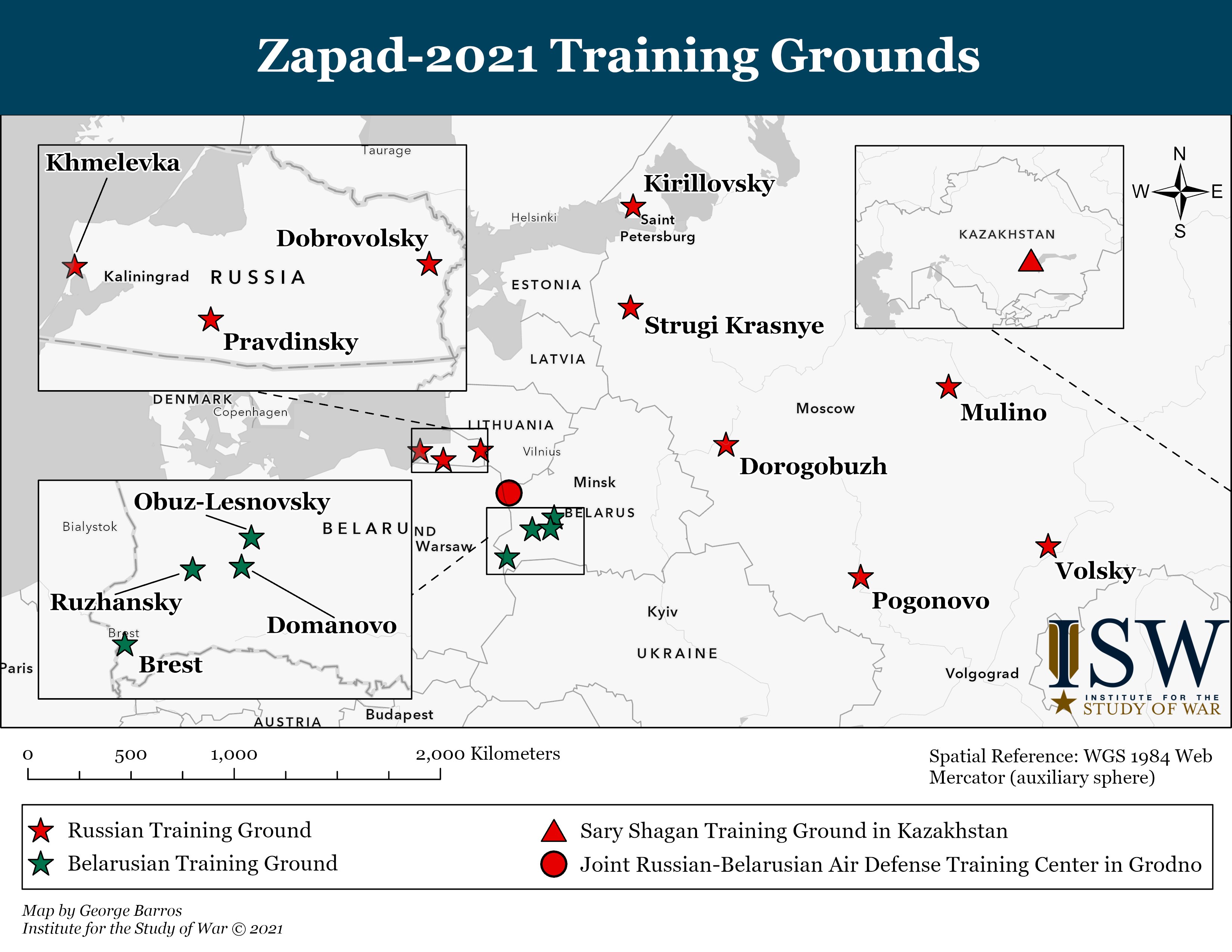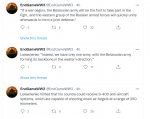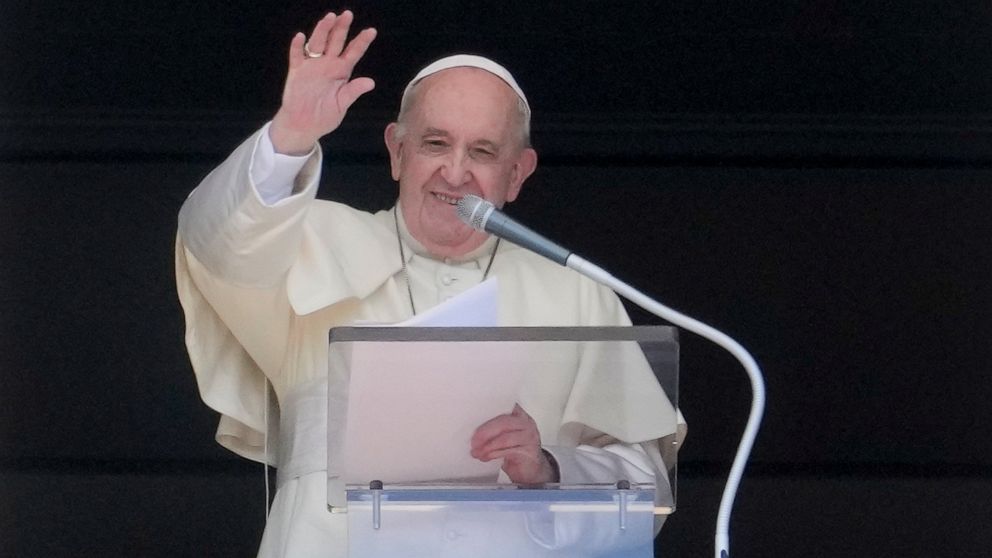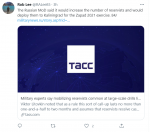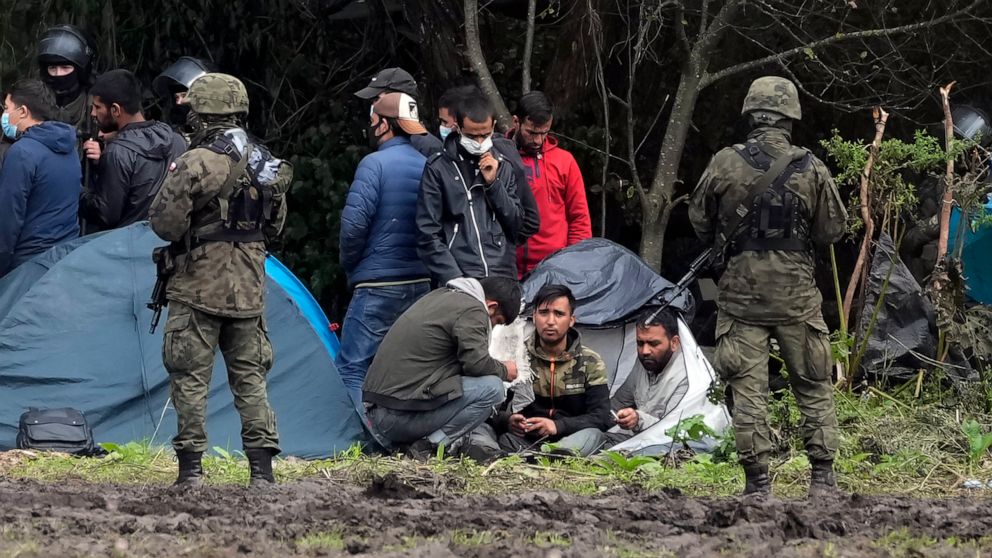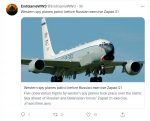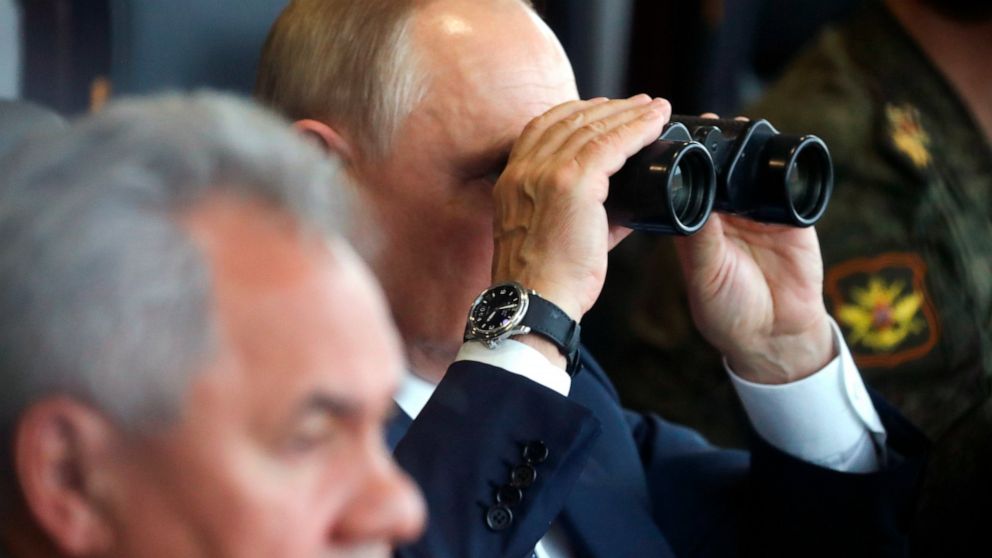ZeroHedge - On a long enough timeline, the survival rate for everyone drops to zero

www.zerohedge.com
Spain's Supreme Court Rules Against Using Vaccine Passports To Restrict Access To Public Spaces
BY TYLER DURDEN
WEDNESDAY, AUG 25, 2021 - 02:00 AM
Authored by Nick Corbishley via NakedCapitalism.com,
It’s the first time a high court of a European Member State has challenged the use of vaccine passports domestically.
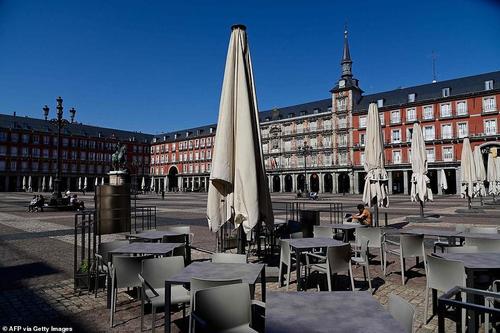
Spain’s Supreme Court made waves last week by becoming the first judicial authority in Europe
to rule against the use of covid passports to restrict access to public spaces — specifically hospitality businesses (bars, restaurants and nightclubs). It is not the first Spanish court to come out against vaccine passports but it is the most important. So far, only five of Spain’s 17 autonomous regions – the Canary Islands, Ceuta and Melilla, Andalusia, Cantabria and Galicia – have proposed using vaccine passports to restrict access to public spaces. And all have been rejected by local judges.
The EU’s Green Pass is a one-piece QR-code document that can be issued to a traveller in both paper and digital format. It is intended to prove that the holder has either received one of the four vaccines authorised by the European Medicine Agency (BioNTech-Pfizer’s, Moderna’s, AztraZeneca’s and Johnson &Johnson’s), has tested negative for Covid-19 in the last 48 hours or has been infected with Covid in the last six months and therefore has natural immunity. However, some countries such as France have chosen
only to allow entry to travellers that are fully vaccinated.
Many government are also using the documents to limit access for unvaccinated citizens to public spaces and services with their own countries. But so far Spanish judges have challenged this trend,
on the grounds that it would infringe on certain constitutionally recognised individual rights, such as the right to physical integrity and privacy, while also having limited impact on public health. The Supreme Courts of Andalusia and Ceuta and Melilla said the measures were also discriminatory. When the Supreme Court of Andalusia sided with local hospitality businesses in their appeal against the region’s proposed vaccine passport measures, the regional authority took the case to the national Supreme Court. And lost.
Economic considerations may have also played a part in the courts’ decision. Spain’s hospitality sector generates a huge amount of money and a huge number of jobs, especially during the peak tourist season (i.e., right now). The sector has already been through the grinder of last year’s three-month national lockdown as well as sporadic regional lockdowns. Even with the introduction of vaccine passports, overseas visitors continue to arrive in
dribs and drabs. As was the case last year, it’s domestic demand that is
keeping many businesses alive. And limiting that demand is likely to create even more economic pain.
Constitutional Clashes
But this is not the first time that Spain’s government and regional authorities have clashed with the judiciary over the management of the public health crisis.
Since Spain ended its state of alarm on May 9th, the high courts in the Valencia region, the Balearic islands, Catalonia, the Canary Islands and other parts of Spain have prevented regional authorities from applying a range of anti-Covid restrictions, including curfews and limits on social gatherings, on the grounds that it’s unconstitutional to breach fundamental rights when there’s no longer a state of alarm.
Then, on July 14, Spain’s top judicial body, the Constitutional Court, delivered another hammer blow, by
ruling that Spain’s coronavirus state of alarm had been unconstitutional all along. The government, it said, should instead have called for a state of emergency – which requires prior parliamentary approval – to curtail fundamental rights for the nationwide lockdown.
In its August 18 ruling, against using the Digital Covid Certificate to grant or deny access to nightlife venues, the Supreme Court
said there wasn’t enough “substantial justification” for the requirement of a health pass in bars and nightclubs across the entire region of Andalusia, seeing it more as a “preventative measure” rather than a necessary action. Instead, it said the measure “restrictively affects basic elements of freedom of movement and the right of assembly.”
Interestingly, the Supreme Court
also said that using vaccine passports to control access to public spaces and services may not even help prevent infections. In fact, it may exacerbate them, given that recent research has shown that people who have been vaccinated or previously infected with Covid-19 can still catch and spread the virus. As such, implementing a vaccine passport system does not protect others from infection, including those who gain access to a public space by presenting a negative result of a PCR test. Such a document, the court said, “only proves that at the time of the test these people were not carrying the active virus”.
By now it is clear, as Yves
laid out meticulously on Friday, that the vaccines are not what they were cracked up to be. Their efficacy fades quickly and is particularly depleted against the Delta variant. Research has also shown that the virus loads of the vaccinated and the unvaccinated are almost identical with regard to the Delta variant. As such, if a vaccinated person and an unvaccinated person have
roughly the same capacity to carry, shed and transmit the virus, particularly in its Delta form, what difference does implementing a vaccination passport, certificate or ID actually make to the spread of the virus?
This is a question that many of the people who attended the Boardmasters’ Music Festival in the UK may now be asking themselves. To attend the event they needed to prove, with their NHS Pass, a recent negative test, full vaccination or Covid infection in the past 180 days — in other words, almost exactly the same conditions required by the EU’s Green Pass. The event’s organizers seem to have done everything by the book yet roughly one week after the festival, almost 5,000 Covid cases had been
potentially linked to the event. The city where it was held, Newquay, became England’s
“Covid capital”, registering up to 1,110 cases per 100,000 people in the week ending August 14 — nearly four times the average rate in the country.
Fierce Public Opposition
In the wake of the Spanish Supreme Court’s ruling there is probably little point in any of Spain’s 17 regional governments even trying to use Covid health passes in their territories for any purpose other than travel abroad. If such measures were introduced, they would only be in force for a brief period before a court shelved them.
It’s a very different story across the rest of the EU. Even as the evidence grows that the current crop of vaccines are not very effective at limiting the spread of the Delta variant and that so-called “breakthrough cases” are not nearly as rare as the term would suggest, most governments are accelerating and expanding their use of vaccine passports and mandates. Twenty-two out of 27 EU Member States
already require hospitality green passes or similar health passports to enter restaurants, bars, museums, libraries and other public places.
In France those without a pass are
banned from the outside terraces of cafes, bars and restaurants. They are not even allowed to enter hospitals, apart from for emergency procedures. By the end of August many private-sector workers who serve the public
have to be vaccinated. The jab will also become mandatory for all French health workers by Sept. 15. The government insists the pass is necessary to encourage vaccination uptake and avoid a fourth national lockdown. But for many protesters the new legislation represents everything a constitutional republic like France should stand against: authoritarian control, discrimination, denial of access to basic freedoms and services, education and healthcare.
Opposition among the vaccine hesitant remains fierce. For a sixth straight Saturday, hundreds of thousands of people
turned out in towns and cities across France to vent their fury at the government’s increasingly repressive vaccine laws. If anything, the demonstrations are likely to intensify in the coming weeks, as students — often a vital cog in French protest movements — return to university and vaccine-reluctant public workers begin to contemplate life without an income.
Large demonstrations have also taken place in Italy, Greece and Germany. In Latvia’s capital, Riga, 5,000 people took to the streets on Wednesday night to protest government plans to make vaccination mandatory for certain professions and allow employers to fire workers who refuse to get jabbed. It was reported to be the largest demonstration in Latvia since 2009.
A Kafkaesque Twist
In Spain, meanwhile, everything is rather quiet. There are few protests against the vaccine passports, since their impact on daily life has not been felt. Most people over the age of 30 are quite happy to get vaccinated — so much so that Spain, with 67% of its population fully vaccinated, places fourth on
Oxford University’s Our World in Data’s ranking of the world’s most vaccinated countries. What’s more, Spain is yet to see its vaccine campaign stall, as has already happened in countries such as the US, Israel, Germany and France.
Given that Spanish residents are getting vaccinated in such large numbers, there’s arguably even less need to use vaccine passports domestically. Fernando García López, the president of the Research Ethics Committee at the Carlos III Health Institute in Madrid, argues that is better to “convince rather than coerce, something that can polarize,” adding that in Spain, “there is
no major anti-vaccination group against which we need to fight, as is happening in other places.
But that hasn’t stopped the passports from already creating a Kafkaesque nightmare for thousands of Spanish residents. During the latest wave of the virus, the country’s primary care service became so swamped that doctors and nurses in many parts of the country
began using the much faster (and much cheaper) antigen tests to check patients for infection. The only problem is that to qualify for the EU’s health certificate on the grounds of natural infection, you need to have had a positive PCR test; the results of antigen tests are not recognised.
And that means there are now thousands of people in Spain who are in limbo. They have all had a recent Covid infection, which means they should have natural immunity. And that means they should qualify for the EU’s Green Pass. But because Spain’s health authorities used the wrong test on them (presumably by mistake), they don’t. According to the EU these people never had Covid. Unless Brussels makes an exception for them, which is looking pretty unlikely, they will now have more difficulty travelling to other parts of Europe.
It’s just one example of how arbitrary life can become in the “new normality” taking shape around us. As governments exert greater power and authority over our lives, all it takes is a simple administrative mistake for members of the public to suddenly find themselves unable to enter other European countries or even access public places and basic services in their home town. And as we’ve repeatedly seen since this pandemic began, governments and public authorities are prone to making mistakes pretty regularly.
